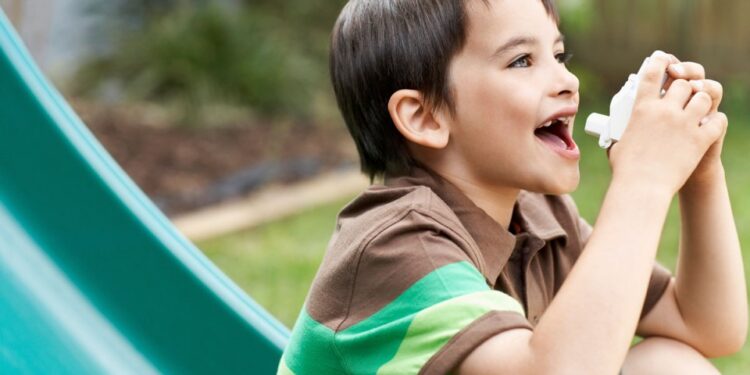Over the past five years, the Nebraska school system has taken an active role in helping families, students, and schools in the treatment of life-threatening asthma and allergic reactions. A protocol for the treatment of life-threatening emergencies requires that three individuals in every school building be trained to respond to the treatment of symptoms of a child with life-threatening asthma or allergic reactions. Taking care of children with asthma/allergies at school has become a priority since children spend the majority of their day with peers and staff.
Boys Town Allergy, Asthma & Pediatric Pulmonology offers some helpful reminders for both parents and schools.
Parentsr
- r
- See your child’s doctor annually
- to review his/her medications
- and treatment plan.
- Notify the school of your child’s
- asthma or allergy.
- Submit any medical history, health status and treatment plans.
- Include a list of asthma triggers.
- Send a list of emergency contacts, including names to contact if you are not available.
- Talk with your school nurse/principal about how to respond in an emergency attack.
- Leave a set of medications at your child’s school with detailed instructions on how to administer medicine if an attack should occur.
- Talk with your child about the use of his/her medications at school.
r
r
r
r
r
r
r
r
r
r
r
rSchoolsr
- r
- Review the written emergency plan with the child’s parents at least once a year to make sure there have not been changes or updates.
- Know exactly where the child’s medicine is stored and how to administer medicine if necessary.
- Understand the trigger signs for an asthma attack.
r
r
r
rReview the school’s protocol for emergency situations. Remember that asthma and allergy attacks can strike at any time, that’s why Nebraska requires that children have access to lifesaving medications. Children are able to carry their own inhalers and other medications needed for asthma or allergy attacks and schools have Epinephrine (EpiPen®) on hand for emergencies.
The EpiPen® is easy to administer and store, and is available in two strengths to support weight-based dosing. An injection of epinephrine can be given within minutes after a serious reaction begins and can be lifesaving for the child, allowing time to get to the emergency room for further treatment, and it gives the child relief of airway constriction.
All Nebraska schools are prepared to respond to life-threatening asthma and allergic emergencies. Families, physicians, and schools working together can make a difference in a child’s asthma and allergy condition. Parents can rest a little easier knowing that schools in Nebraska are ready to take care of children with asthma or allergic reactions.
Kevin R. Murphy, M.D.rBoys Town NationalrResearch Hospital














